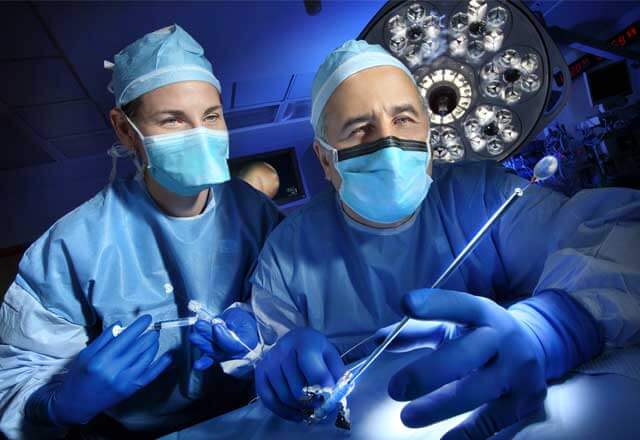Fetal Surgery and Procedures

For patients facing a complex fetal condition, the Center for Fetal Therapy offers varying levels of care. Depending on your needs, you may turn to us for a consultation, co-managed care with your obstetric provider or comprehensive maternal and fetal care.
Diagnostic Services
Dr. Baschat and the Center for Fetal Therapy team excel at diagnostic testing, fetal monitoring, comprehensive fetal cardiovascular assessment and high-risk maternity and delivery care. Our highly skilled team makes use of advanced 2-D and 3-D ultrasound techniques, magnetic resonance imaging and the latest research into fetal treatment.
Fetal Blood Sampling
Fetal blood sampling is a procedure used to diagnose, treat or monitor various fetal problems.
First-Trimester Fetal Echocardiography Program
This program allows for the diagnosis of major congenital heart defects early in pregnancy.
Fetal Surgery Procedures
The Fetal Therapy Center offers the following procedures to ensure the best outcomes for both mom and baby:
Ex-utero Intrapartum Treatment (EXIT)
Ex-utero intrapartum treatment (EXIT) refers to a special technique used to deliver a baby through an incision in the uterus. In an EXIT procedure a functioning airway is established before separation from the placenta. EXIT can be a lifesaving procedure for many babies with airway obstruction.
Fetal Shunt Placement
This procedure is performed when there is a severe renal/urinary abnormality in the fetus in order to drain the fetal bladder and obtain a fetal urine sample for testing. Stents can also be used to drain extra fluid from the fetal chest.
Fetoscopic Laser Surgery
Fetoscopy refers to the insertion of a small laparoscope into the uterus in order to visualize the fetus and placenta. Through the fetoscope a number of devices can be inserted to treat a number of conditions. This procedure is most frequently performed to carry out laser ablation of placental anastomoses for the treatment of twin-to-twin transfusion syndrome and the tracheal balloon placement for congenital diaphragmatic hernia.
Fetoscopic Tracheal Occlusion (FETO)
Fetoscopic tracheal occlusion (FETO) is an experimental procedure used for fetuses diagnosed with congenital diaphragmatic hernia (CDH) and impaired lung development. FETO reversibly blocks the trachea of the fetus with a latex balloon. Research has shown that this temporary tracheal occlusion can improve development of the fetal lung, which may lead to improved survival in babies with CDH.
Fetoscopic Spina Bifida Repair
Is an experimental procedure where closure of the spina bifida is performed through a minimally invasive approach. The procedure offers the advantage of achieving closure of the fetal spinal defect with minimal impact on uterine integrity. Unlike traditional open spina bifida surgery vaginal delivery at term is an option following fetoscopic repair.
Intrauterine Transfusion
This procedure is done using ultrasound guidance to place a small needle through the mother's abdomen into a small fetal blood vessel. Blood, platelets or medications can be administered to the fetus through this technique.
